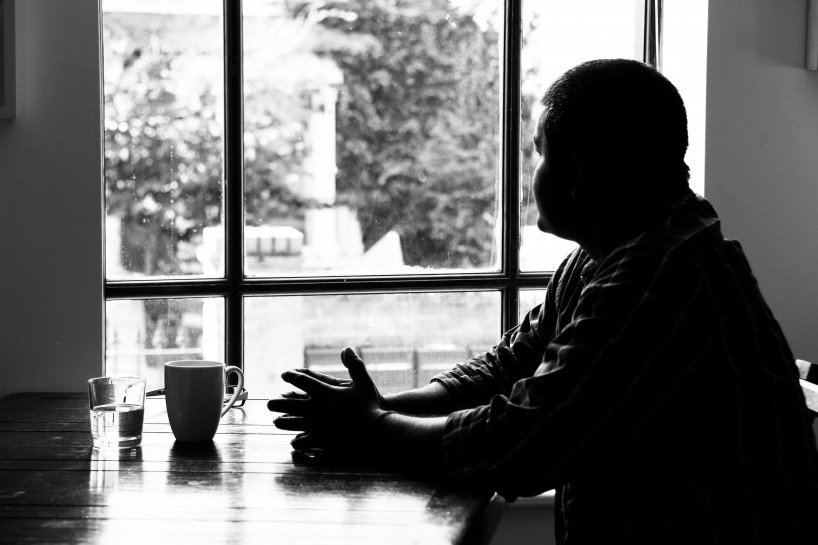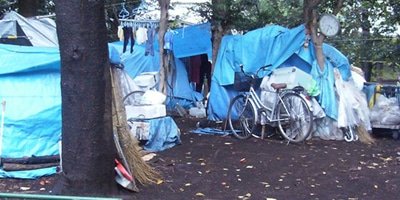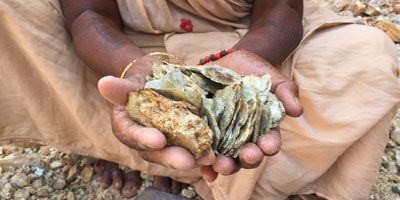
Tharindo, a Sri Lankan national of Tamil descent studying for his PhD at London’s King College, talking about his brother Saman’s death. In May 2009, he says, five State Intelligence Service officers arrived at the home his brother shared with their mother and sister in Colombo. The police report says that Saman jumped from the balcony of the family’s seventh floor apartment in an ill-fated attempt to escape during questioning. Neighbours say they saw police officers take Saman, his hands bound behind his back, out to the balcony and throw him over the railing. Photo: Natasha Skreslet
Claims of extrajudicial executions are not uncommon in Sri Lanka. The Asian Human Rights Commission has referred to a “constitutionally entrenched impunity” which plagues the small island nation just emerging from three decades of civil war.
From 1971 to 2011, Sri Lanka was under a state of emergency almost continually. Emergency regulations can override, amend, or suspend legislation, and permit detention without charge or trial for up to 18 months in a secret location. Human rights advocates say this facilitated human rights abuses like forced disappearances, torture and death in custody.
“The emergency regulations are a real concern because they introduce very broad categories of what constitutes terrorism, and erode the normal safeguards that would be in place when someone is detained,” Yolanda Foster, of Amnesty International’s South Asia team, told me.
Successive governments have used national security as justification for the introduction of a broad range of security legislation.
Sri Lanka also has a Prevention of Terrorism Act, which allows for the suspension of certain rights of criminal procedure, including that of being presumed innocent until proven guilty.
“The emergency regulations and the Prevention of Terrorism Act put all citizens of Sri Lanka at risk of arbitrary detention. But, because of the nature of the ethnic conflict, the security forces have predominantly targeted young Tamil men with these laws,” Foster said, who are especially subject to arbitrary arrest and detention.
What happened to one young man, “Saman”, is an example of how police operate, his brother told me. He died during an encounter with police, who also arrested his mother and sister, claiming that Saman was involved with the Liberation Tigers of Tamil Eelam.
Saman’s brother, Tharindu, is adamant about his innoncence. “He was studying. He was not a member of the Tigers, I can assure you of that. Even the police report said that my mother and sister don’t know anything.”
The 2011 Amnesty International report “Forgotten Prisoners” quotes one lawyer as saying: “We in the legal profession don’t even know how many prisoners are on remand for crimes they didn’t commit. Sometimes prisoners end up pleading guilty out of desperation, so they can put an end to the feeling of being in limbo.”
This is normal in Sri Lanka, Tharindu says. The lawyer representing Tharindu’s mother and sister presented them with a similar deal. The authorities could drag the case out for two, three, even five years, but if they plead guilty to the charges against them, there was the possibility that the sentence could be reduced to as low as four months. They refused.
The Supreme Court of Sri Lanka, in April, 2010, ruled that there was no evidence with which to hold them, and the Attorney General ordered the release of both women. However, they remained in detention because the Ministry of Defense refused to obey the release order.
“There are so many similar cases where the judgment is to release but the Ministry of Defense objects. The judiciary has no role in Sri Lanka,” says Vairamuttu Varadakumar, of the London-based Tamil Information Center. “The accountability is gone.”
“One of the challenges that Sri Lanka faces is that there are no independent institutions functioning,” Foster said. “And since the end of the war Sri Lanka has seen a concentration of executive authority.”
Defense Secretary Gotabaya Rajapaksa, is President Mahinda Rajapaksa’s brother. Two other brothers also hold high political positions.
In practice this means that there is no institution with the authority to investigate human rights violations and prosecute offenders.
In 2011 emergency regulations were lifted, but other laws, like the Prevention of Terrorism Act, remain in force and allow the thousands of people currently detained, many without charge, to remain so.
The United Nations Refugee Agency reports that of more than 11,000 people arbitrarily detained in 2009, 6,000 remain in detention camps without access to lawyers or the Red Cross.
“They are trying to close the case in favour of the police,” Tharindu said. “If they release Gayani and Sachini and say nothing happened, then the question remains – why was my brother killed, and by whom?”





